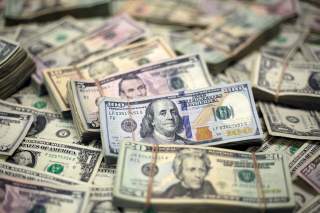The Future of the Dollar—and Its Role in Financial Diplomacy
If the military strength and economic wealth of the United States underpin the dollar’s central role, then America’s global influence is enhanced because its currency dominates trade, finance and sovereign reserves.
A great irony of the current political landscape is that deep within the turgid prose of international financial communiques lurks a surprisingly populist agenda. The Trump administration seems unlikely to seize the chance, but presidential candidates who emerge in the near future should pay attention. If the United States is to protect its own financial tools and reinforce the stability of the global system, it must underscore the actual successes and the potential for more progress. For voters concerned about security, the work of the U.S. Treasury and its counterparts through FATF has dramatically improved cooperation against drug gangs and terrorists. For voters who chafe at a political system they view as rigged to favor the rich and powerful, the Organization for Economic Co-operation and Development, the Asia-Pacific Economic Co-operation and others have been developing mechanisms with U.S. support to crack down on tax havens and official corruption. Meanwhile, America’s engagement with the G20 and the G7 has shaped conversations on how reforms to the global financial system can help alleviate global inequality, establish better strategies to reduce excessive sovereign debts and champion financing mechanisms that address climate change.
NEITHER AMERICA nor its currency are headed to inevitable decline. Yet a period of populist resentment over current financial structures along with shifting allocations in the global economy have triggered questions about the U.S. commitment to the postwar Bretton Woods consensus. The Trump administration’s rhetoric and protectionist measures have raised even more questions. Even a casual review of history confirms that the current system is based as much on U.S. power and luck as consensus, but its reinforcement for a more turbulent era ahead will require still more policy creativity. Disgruntled domestic interests need to be reminded of the rare political benefits the United States derives from issuing the world’s safe-haven currency. Political leaders also need to demonstrate just how international financial engagement can support a global economy that is not just strong and sustainable, but also fair and accessible to others. U.S. financial diplomacy more than most diplomatic endeavors requires trust to succeed: the trust of voters that American engagement will help address their central fears and the trust of other countries that the dollar and its institutions offer the best mechanism for managing financial stability and economic growth.
Christopher Smart is head of Macroeconomic and Geopolitical Research at Barings and a non-resident senior fellow at the Carnegie Endowment for International Peace.
Image: Reuters

